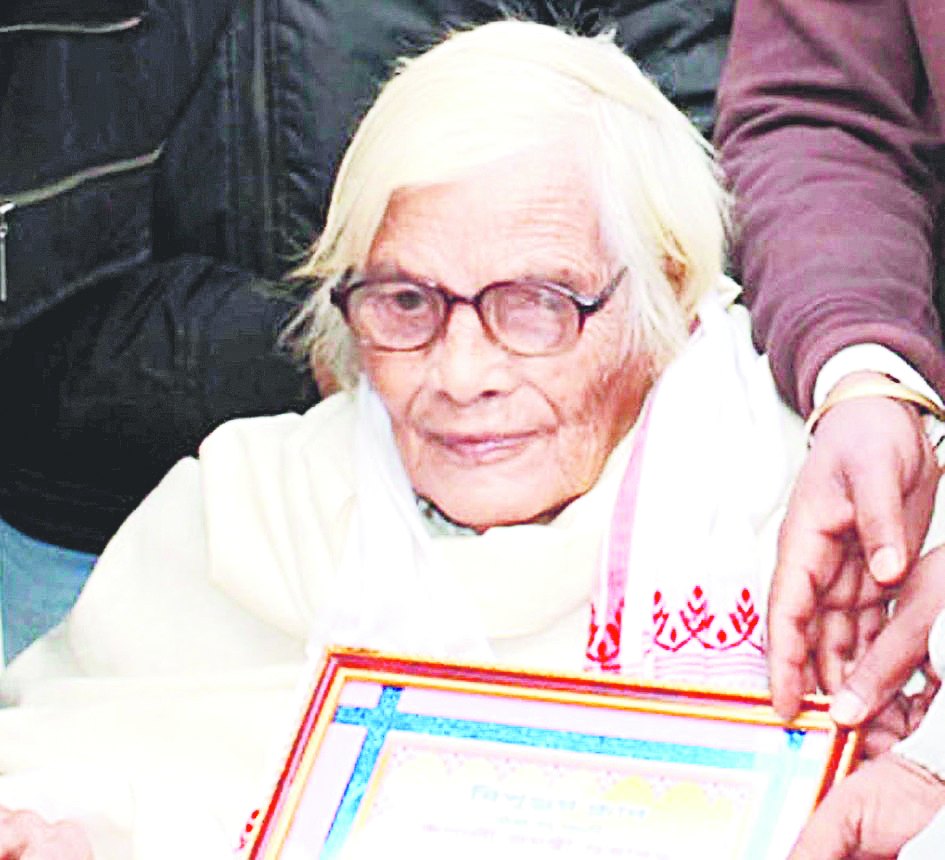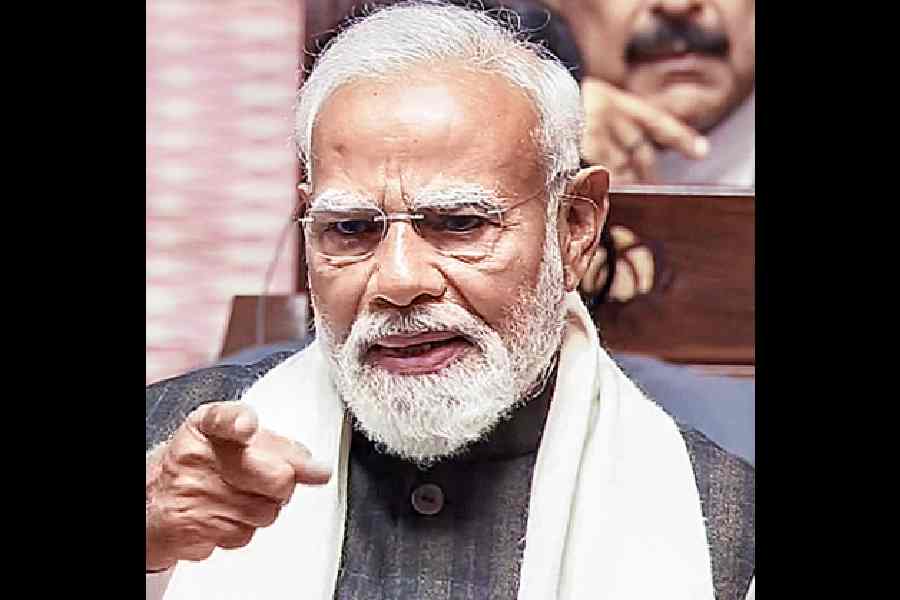
Guwahati, Feb. 22: Adya Sharma, 86, a cultural icon and pioneer of mobile theatre in Assam, passed away at a private hospital in Nalbari town today.
Sharma was admitted to the hospital this morning after his health deteriorated. He died at 5.47pm.
He is especially remembered for bringing innovation in the technical aspects of mobile theatre, thus making it more attractive and capable of staging more complex themes.
Sharma, a bachelor, was suffering from age-related ailments.
Born in 1929 to Chandranath Sharma and Ghunusapriya Devi, Sharma made his foray into mobile theatre in 1966 through Purbajyoti Theatre.
One of his remarkable achievements was staging Titanic in Kohinoor Theatre, one of the leading mobile theatre groups in Assam.
He had received Bishnu Prasad Rabha Award and Pranab Barua Award and was felicitated by numerous organisations for his contribution to the cultural world. The state government honoured him with artiste's pension.
This evening, local residents and several organisations took his body to Makhibaha, the village where he was born. Tomorrow people and organisations will pay tribute to him at Nalbari town before the cremation.
"He (Sharma) was associated with me from the time I started Kohinoor. He was like my elder brother. I used to call him kaka (elder brother)," said the owner of Kohinoor Theatre, Ratan Lahkar.
Since childhood, Sharma was more interested in painting and sculpture than attending classes. During World War II he ran away from home and joined the painting department of 226 BDO ordnance depot at Dimapur. The head of the department, John Smith, came to know about his interest and provided him guidance.
Sharma left his job and returned to Nalbari in 1946 and started earning a livelihood by teaching painting and working as a painter. He did not have any formal education in painting but he considered Smith his guru.
Sharma set up Ranghar, an organisation dedicated to promote painting, at Nalbari. Simultaneously, he began to work as a make-up artiste for various plays which were staged in the town. This opened another door for his career.
As he got involved with theatre, Sharma began experimenting with innovations to bring about technical improvement in theatre and succeeded in his endeavour.
Assam chief minister Tarun Gogoi said Sharma's death was an irreparable loss. "He was a genius and his contributions will be remembered by posterity," he said.










